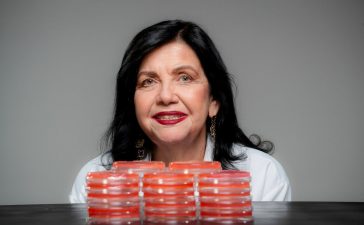Stay informed with free updates
Simply sign up to the Renewable energy myFT Digest — delivered directly to your inbox.
Scotland is to host the three largest battery energy storage systems in Europe after an infrastructure investment fund committed £800mn to build two new battery projects, with a combined 1.5 gigawatts of power capacity.
Copenhagen Infrastructure Partners, the biggest supplier of battery storage in the UK, on Wednesday said it would start construction on the Coalburn 2 project, in South Lanarkshire, as well as the Devilla project in Fife.
The two new projects are expected to come online in 2027-28 and will add to Coalburn 1, which is already under construction and is scheduled to start operations in October. Each of the 500 megawatt facilities are larger than any other in Europe, according to CIP.
Together, the three systems will be able to store and supply the grid with three gigawatt hours of electricity, enough to supply 4.5mn households for two hours.
First Minister John Swinney described the investment as “a significant contribution to the growth of Scotland’s energy transition infrastructure”.
“By helping to supply reliable and secure power to our homes and businesses, well-located storage systems . . . can move us closer to net zero and directly support the communities around them,” he said.
Swinney’s Scottish National party administration is focusing on boosting investment into the country ahead of the May 2026 Holyrood elections. “Scotland is open for business,” he added.
While Europe has invested heavily in wind and solar power, it has until recently considered large-scale batteries to be an expensive and small-scale solution to the intermittency of renewable energy, instead choosing to rely on coal and gas fired power stations.
As a result, the total European large-scale battery storage capacity stood at just 10.8GW at the end of last year, according to Aurora Energy Research, including 4.5GW in the UK, which has been the most attractive destination for investment.
But the falling cost of batteries has made them an increasingly attractive option and a wave of new plants are likely to be built in the coming years after a series of successful auctions across the continent.
Scotland has emerged as an ideal location for battery storage, owing to a surplus of renewable wind energy and constrained grid infrastructure. By 2030, about 60 per cent of UK energy will be generated by wind, with 31 per cent sourced in Scotland, according to CIP.
As the UK targets a largely decarbonised grid by 2030, the country is aiming for 27-30GW of battery storage, up from the 4.5GW now operational.

Battery energy storage systems, which can charge when electricity prices are low and discharge during peak periods of demand, provide flexibility to the grid that enables a faster rollout of renewable energy.
The technology is vital for balancing demand when electricity generators cannot match their forecast usage.
CIP, the world’s largest fund manager focused on greenfield renewable energy investments, is investing in more than 30GW of renewable energy infrastructure in the UK, worth more than £15bn.
But such sites have raised opposition among some local communities over safety concerns and noise pollution, with a number decrying the industrialisation of rural areas.
The Coalburn projects, adjacent to existing onshore wind facilities, are located on a former coal mine — “a symbolic example of new energy”, said Gillian Martin, acting secretary for net zero and energy.
But she cautioned that there had to be limits on the extent of battery storage, noting that the technology had “to coexist with the rest of Scotland as well”.
“We have to make sure these battery storage parks are in the right place and in the right conditions and that communities see the benefit,” Martin added.











